Research, Epidemiology & Infection Prevention

Course Director: Devyani Lal, M.D.
Mayo Clinic COVID-19: Expert Insights & Strategies Online CME provides concise updates related to COVID-19 through convenient, pre-recorded webinars. This online CME course will provide learners with the latest updates and strategies to protect themselves and their communities, and to provide treatment and mitigation information to enable healthcare workers to better manage cases and mortality rates. Topics include appropriate community- and personal-level protective and mitigating efforts; therapeutics; correct usage of personal protective equipment (PPE); and discussion of special scenarios healthcare workers may face.
Please see the "Program" tab for a summary of the segments available in the Research, Epidemiology & Infection Prevention category.
This education is part of a larger curriculum of COVID-19 education and is supported in part by an independent medical education grant from Pfizer Inc. and is in accordance with ACCME guidelines. Click to view the full course contents.
Target Audience
Healthcare workers of all specialties who are being impacted by COVID-19, including physicians, research scientists, physician assistants, nurse practitioners, nurses, and anyone with a particular interest in prevention, treatment, and patient care.
Learning Objectives
Upon conclusion of this program, participants should be able to:
- Describe COVID-19 clinical features, virus characteristics, disease pathogenesis, multi-systemic effects, laboratory testing, factors in increased morbidity and causes of mortality
- Identify criteria for PCR testing, antibody serology and interpretation of test
- Recommendation strategies for caregivers and providers managing patients with COVID-19 at home; tele-monitoring COVID-19 patients
- Define methods for for managing COVID-19 positive and under-investigation patients in the hospital setting
- Describe aerosol generating procedures in the hospital in outpatient and inpatient settings during the pandemic
- Identify trategies for preventing transmission in healthcare workers overall and high risk workers (emergency department physicians, anesthesiologists, respiratory therapists, pulmonologists, otolaryngologists, etc.)
- Identify strategies for prevention of transmission/mitigation in the community
- Describe investigational treatments and trials (with addition of significant results as they become available) as well as emerging strategies (e.g. prone ventilation)
- Recommend oxygenation strategies in severely sick COVID-19 patients: Mechanical ventilation, ECMO, transfusion etc.
- Apply guidance for managing special patient populations during the COVID-19 pandemic: pregnant patients, patients with acute emergencies, patients with immunodeficiency, patients undergoing cancer treatment
- Implement cross-training/retraining on COVID-19 relevant procedures (e.g. ventilator management)
- Describe guidelines on the correct use, donning and doffing for personal protective equipment (PPE)
- Implement telemedicine solutions for training and patient care
Utilization of this Mayo Clinic online (enduring materials) course does not indicate nor guarantee competence or proficiency in the performance of any procedures which may be in this course.Attendance at any Mayo Clinic course does not indicate or guarantee competence or proficiency in the skills, knowledge or performance of any care or procedure(s) which may be discussed or taught in this course.
The Mayo Clinic COVID-19: Expert Insights and Strategies Online CME Course brings together pre-recorded lectures and podcasts to offer a wide array of topics surrounding COVID-19. This course will continually expand to offer updated information. Please mark it as a "favorite" and check back for new and updated offerings.
COVID-19 information evolves daily. The views and perspectives shared in these resources are presented based on information available at the time of recording.
This education is part of a larger curriculum of COVID-19 education and is supported in part by an independent medical education grant from Pfizer Inc. and is in accordance with ACCME guidelines. Click to view the full course contents.
Program - Research, Epidemiology & Infection Prevention:
 | An Update on COVID-19 with Stacey Rizza, M.D., FIDSA - Online CME Course As the COVID-19 pandemic continues to evolve, so does our understanding of the disease. Mayo Clinic infectious diseases specialist Stacey A. Rizza, M.D., FIDSA, presents an updated overview of COVID-19 and the causative agent SARS-CoV-2. She covers the emerging risk factors associated with poor prognosis, the symptoms timeline, stages of disease progression, and how these stages impact our treatment decisions. |
 | 94th Annual Clinical Reviews - Online CME Course The 94th Annual Clinical Reviews seeks to update primary care providers on the latest recommendations involving medical subspecialties. The course provides a comprehensive program of lectures on topics of general interest in medicine, surgery, and pediatrics relevant to clinical practice. |
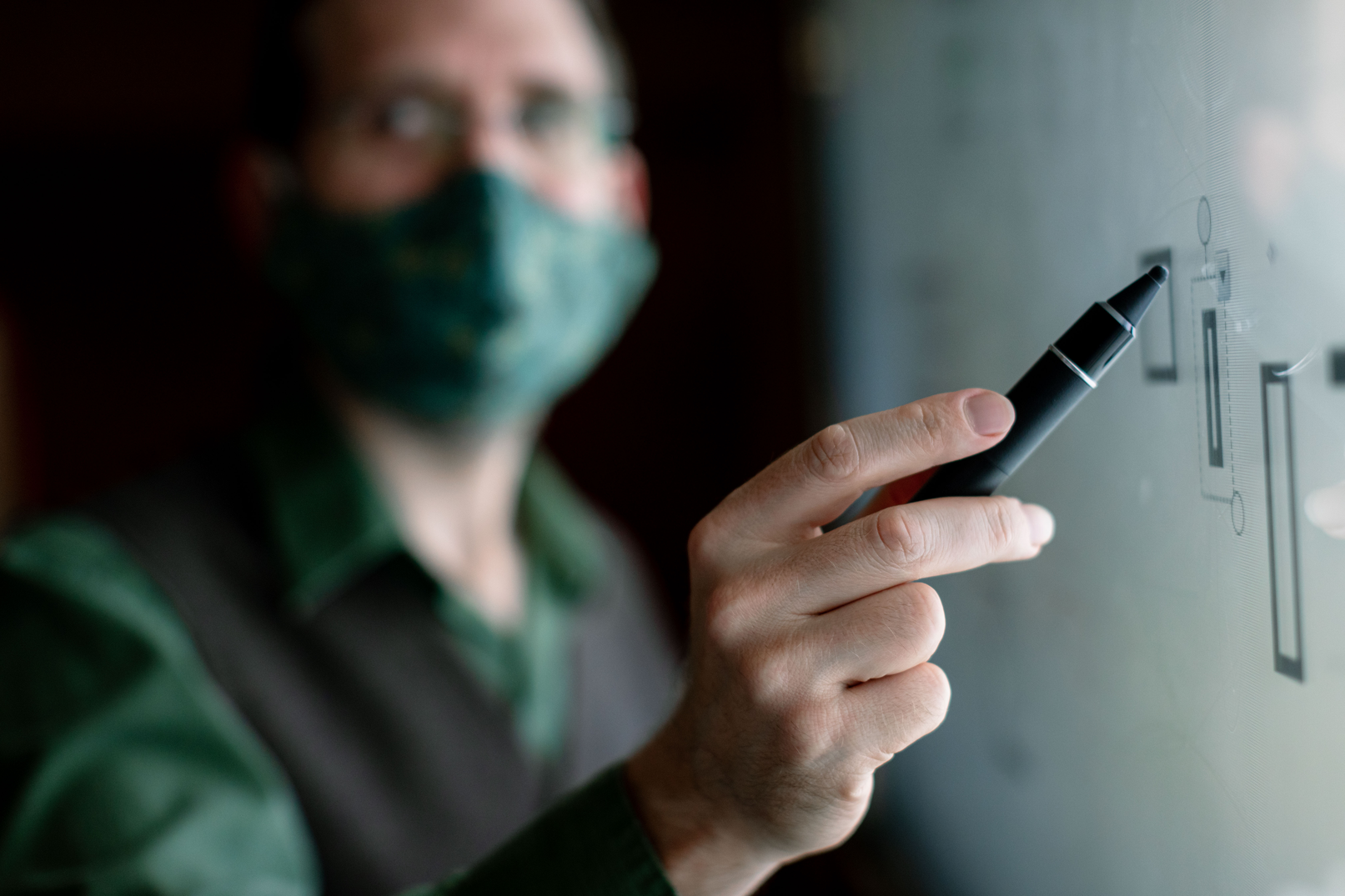 | Contact Tracing: A Core Element of Disease Prevention Preventive medicine specialists Laura E. Breeher, M.D., M.P.H., and Caitlin M. Hainy, APRN, C.N.P., D.N.P., share the core concepts of contract tracing, the risk assessment, and key steps necessary in the challenging framework for exposure investigation. |
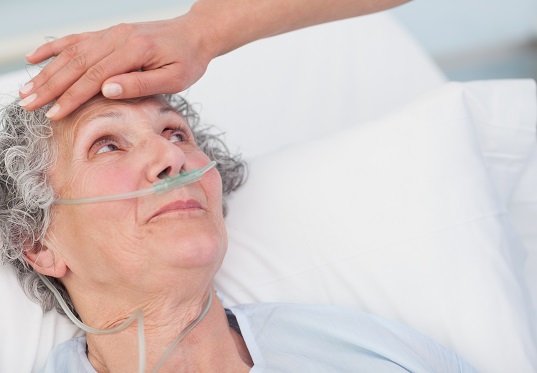 | Aging: The Impact on Immunity During a Pandemic Jessica N. Lancaster, Ph.D., Assistant Professor of Immunology at the Mayo Clinic in Arizona discusses the effect of aging on the immune system, and the correlation between biological aging and COVID-19 infection. |
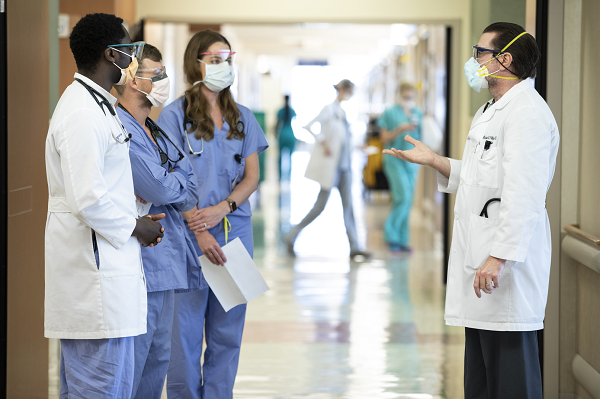 | Respiratory Protection Updates and Returning Healthcare Personnel to Work After Covid-19 Infection Jeffrey (Jeff) C. Nesbitt, CIH, supervisor of industrial hygiene at Mayo Clinic and assistant professor of preventive medicine, explains where to find guidance for respirator use during COVID-19; when to wear a respirator; and precautionary measures for healthcare providers before using reprocessed N95 masks. Melanie D. Swift, M.D., M.P.H., a preventive medicine specialist at Mayo Clinic, reviews the Centers for Disease Control’s current guidelines for employees returning to work after COVID-19 infection and what Mayo has experienced with its test-based strategy. |
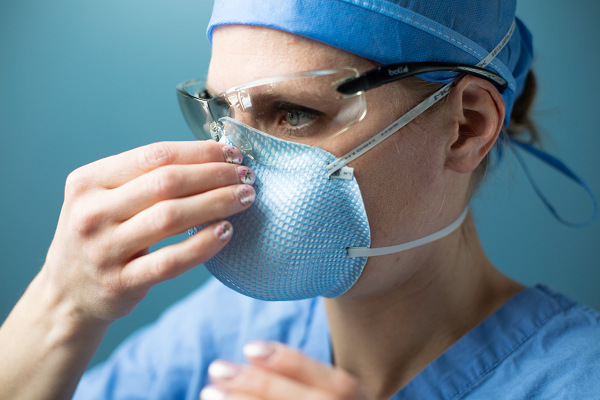 | COVID-19 Ocular and Respiratory Personal Protective Equipment Brittany E. Howard, M.D., Chair of Facial Plastics and Reconstructive Surgery within the Department of Otolaryngology at Mayo Clinic in Arizona, discusses ocular manifestations of COVID-19, ocular transmission risk and current CDC recommendations for ocular personal protective equipment. In a separate video, Dr. Howard discusses SARS-CoV2 droplets and how they interact with aerosols in the air; recommendations for respiratory personal protection; and types of respiratory personal protective equipment as well as a cost comparison of those items. |
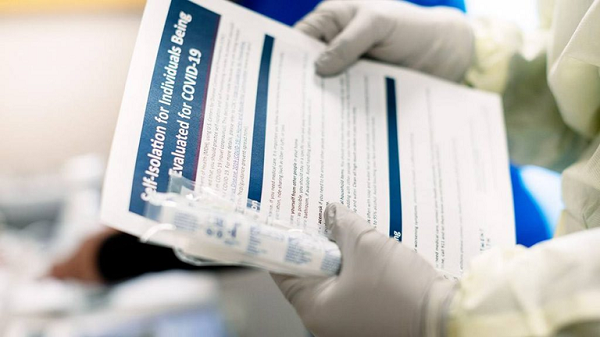 | COVID-19: Testing Options and Considerations Brittany E. Howard, M.D., Chair of Facial Plastics and Reconstructive Surgery within the Department of Otolaryngology at Mayo Clinic in Arizona, discusses the tests currently available for COVID-19. Dr. Howard also covers specific recommendations and techniques for antigen testing, and special considerations as you think about your own patient populations. |
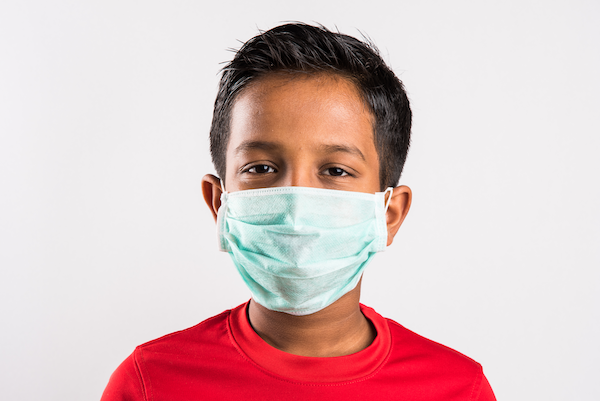 | COVID-19 and Pediatric Patients: Webinar Session 3 Despite the rapidly evolving body of data on SARS-CoV-2 and COVID-19, some uncertainty persists around how the virus affects children. In this webinar, Mayo Clinic pediatrics experts will review the latest research, discuss clinical updates and offer guidance for pediatric health care providers. |
 | COVID-19 Infection Prevention in the Community and Health Care Setting: Webinar Session 2 Shelter-in-place orders are beginning to lift in some parts of the United States. In light of these developments, Mayo Clinic experts discussed infection prevention in health care settings and in the broader community. |
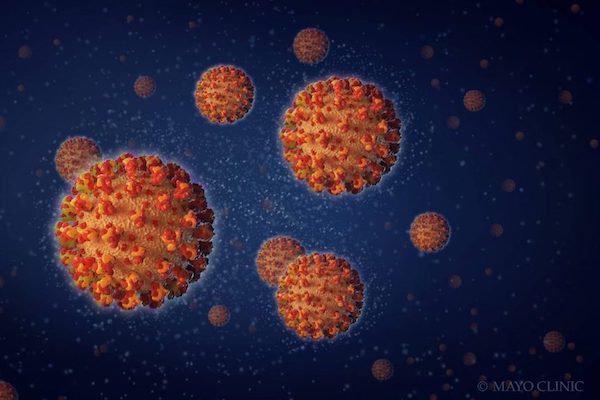 | Research Update: Webinar Session 1 Experts cover ongoing COVID-19 research at Mayo Clinic, including convalescent plasma trials, vaccine development, virology, infection prevention and much more. |
 | Mayo Clinic Q&A - CDC Updates Close Contact Guidelines (Podcast Episode 53) On the Mayo Clinic Q&A podcast, Dr. Gregory Poland, an infectious diseases expert and head of Mayo Clinic's Vaccine Research Group, discusses the updated information from the CDC and the latest information from the Food and Drug Administration on COVID-19 treatments and vaccines. |
 | Neutralizing Antibody Assay, Explained (Podcast Episode 48) John Mills, Ph.D., is the co-director of the Neuroimmunology Laboratory at Mayo Clinic and the scientist who oversaw the development and validation of the new neutralizing antibody assay. Today he joins us to explain what the neutralizing antibody assay is, why it is different than other COVID-19 tests, and the science and innovation behind these efforts. |
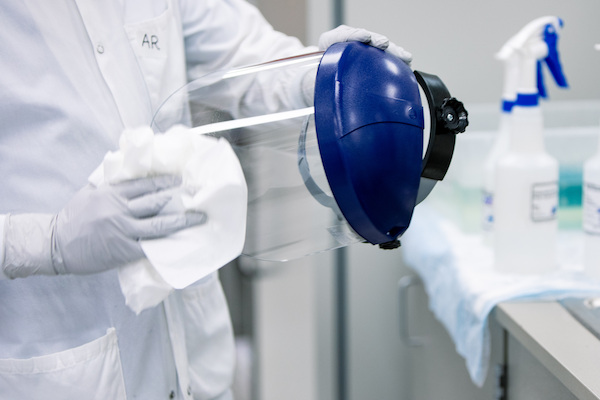 | Supply Chain Vulnerability – Why Don’t We Have Enough PPE? (Podcast Episode 44) Thin margins and economies of scale help lower costs but can create significant vulnerabilities. Often calculations of lives lost in the event of a shortage or costs to stockpile may not be factored in when sourcing supplies. Health care supply chain practices over decades have led to significant weak points in supply chains for some vital materials and providers often have no view of this until it's too late. |
 | The Fierce Urgency of Now – Pursuing a Safe and Efficacious Vaccine (Podcast Episode 32) SARS-CoV-2, as an RNA virus, has marked capacity for mutation and recombination events. How do we build an efficacious and safe vaccine against it? How could we safely speed up development? Is a vaccine neutralizing the spike protein enough? Gregory A. Poland, M.D., gives an update from the front lines of research on vaccine development and ongoing clinical trials. |
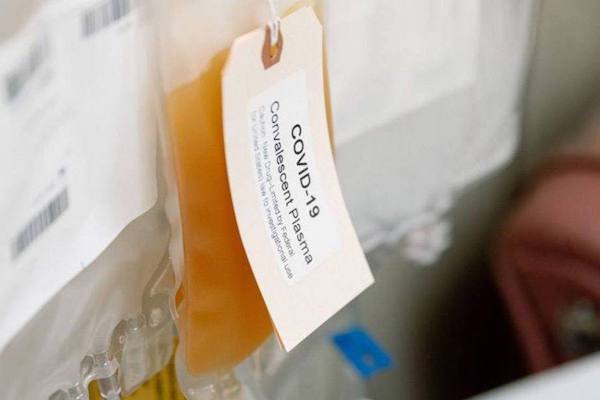 | The Safety of Convalescent Plasma (Podcast Episode 31) Convalescent plasma as a passive immunity strategy is not new. What nuances apply for its application to treating COVID-19? Is it safe? Is it efficacious? Michael J. Joyner, M.D., principal investigator for Expanded Access to Convalescent Plasma for the Treatment of Patients with COVID-19, discusses what's known about this treatment option, information that's currently being gathered and how you can get involved. |
 | Lab Medicine Rounds – Understanding COVID-19-Associated Coagulopathy (Podcast Episode 29) What is COVID-19-associated coagulopathy? Why is it so important to recognize early on? How does it differ from typical disseminated intravascular coagulation (DIC)? Ariela L. Marshall, M.D., details the lab patterns, implications for our patients, and what testing should be evaluated on patients being treated for COVID-19 and when. Click here for more information |
 | Atypical Kawasaki Disease, Recombination Events and Antiviral Therapy Updates (Podcast Episode 26) On the Mayo Clinic Q&A podcast, Gregory A. Poland, M.D., an infectious diseases expert and head of Mayo Clinic's Vaccine Research Group, discusses how SARS-CoV-2 is mutating, the atypical Kawasaki disease emerging in pediatric patients, updates in antiviral therapies, and how scientists and researchers are rapidly gaining new knowledge about the virus and the disease that it causes. |
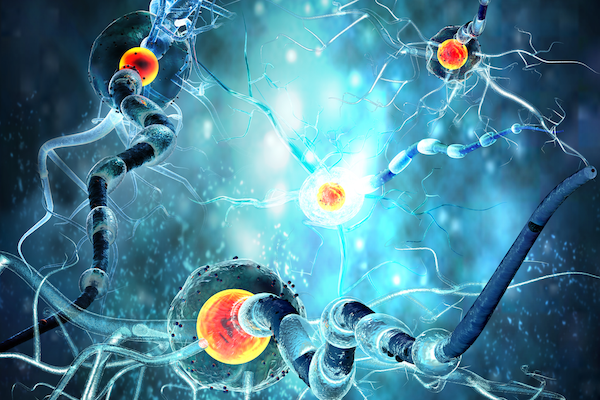 | Possible Neurological Effects of COVID-19 (Podcast Episode 23) Originally identified as a respiratory disease, COVID-19 causes neurological symptoms in some patients, including stroke, loss of consciousness, headache, and even the loss of taste and smell. What's unknown is whether these are direct effects of the virus entering the nervous system, or consequences of the disease's effect on the body. Allen J. Aksamit, Jr., M.D., a Mayo Clinic neurologist, discusses potential neurological effects of COVID-19. |
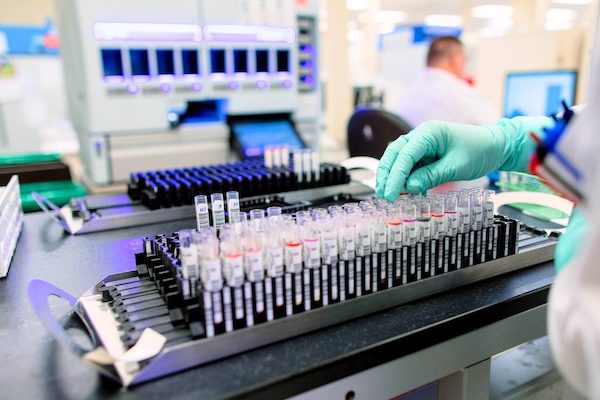 | Rapid Data Collection for Development of Evidence-based Guidelines (Podcast Episode 17) Real-time data collection is essential for developing evidence-based guidelines when facing emerging pathogens. Rahul Kashyap, M.B.B.S., discusses VIRUS, the first global COVID-19 registry that tracks ICU and hospital care patterns in near real-time, and how you can participate. |
Course Director
 | Devyani Lal, M.D. |
|
|
Topic/session specific faculty are detailed under each course page under the Faculty tab.
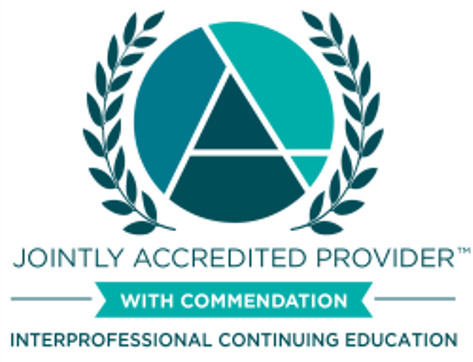 Accreditation Statement
Accreditation Statement
In support of improving patient care, Mayo Clinic College of Medicine and Science is jointly accredited by the Accreditation Council for Continuing Medical Education (ACCME), the Accreditation Council for Pharmacy Education (ACPE), and the American Nurses Credentialing Center (ANCC) to provide continuing education for the healthcare team.
AMA
Mayo Clinic College of Medicine and Science designates this enduring material for a maximum of 9.00 AMA PRA Category 1 Credits™. Physicians should claim only the credit commensurate with the extent of their participation in the activity.
Other Healthcare Professionals
A record of attendance will be provided to all registrants for requesting credits in accordance with state nursing boards, specialty societies or other professional associations.
For disclosure information regarding Mayo Clinic School of Continuous Professional Development accreditation review committee member(s) and staff, please go here to review disclosures.
Available Credit
- 9.00 AMA PRA Category 1 Credit™
- 9.00 Attendance
Cancellation and Refund Policy:
Request for cancellations must be submitted in writing to cme@mayo.edu. When cancelling a registration for a course 14 days or more before the course start date, a full refund (minus a $75 administrative fee) will be issued in the same form of payment the registration was received. No refunds are granted less than 14 days before the course start date.
Any use of this site constitutes your agreement to the Terms and Conditions of Online Registration.

 Facebook
Facebook X
X LinkedIn
LinkedIn Forward
Forward